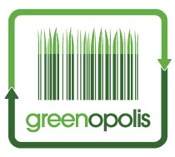Don’t Bogart That Hemp, My Friend, Pass It Over to Me!
Why we shouldn't waste this eco-friendly commodity.
Don’t Bogart That Hemp, My Friend, Pass It Over to Me!
I hate seeing a wasted resource. I hate seeing a resource wasted. But the reason we don’t see more hemp in our lives, in our clothes, food, material palettes for product manufacturing and so on, is that certain people are afraid that WE will get wasted if hemp is widely grown and available.
You see, hemp is classified scientifically as Cannabis sativa — a member of the mulberry family — with hundreds of varieties, including the demon weed, marijuana. But industrial hemp is bred to maximize fiber, seed and/or oil, while marijuana varieties seek to maximize THC (delta 9 tetrahydrocannabinol, the primary psychoactive ingredient in marijuana). While hemp has been grown for at least the last 12,000 years for fiber (textiles and paper) and food, it has been effectively prohibited in the United States since the 1950s. In fact the US Army and US Department of Agriculture promoted a "Hemp for Victory" campaign to grow hemp in the US during WWII. Hemp helped win the war. But hemp as a brilliant history and could have a bright future, according to the North American Industrial Hemp Council.
George Washington and Thomas Jefferson both grew hemp. Ben Franklin owned a mill that made hemp paper. Jefferson drafted the Declaration of Independence on hemp paper. Because of its importance for sails (the word "canvas" is rooted in "cannabis") and rope for ships, hemp was a required crop in the American colonies.
Hemp has been and still is part of industry. Henry Ford experimented with hemp to build car bodies. Today, BMW is experimenting with hemp materials in automobiles as part of an effort to make cars more recyclable. Hemp oil once greased machines. Most paints, resins, shellacs, and varnishes used to be made out of linseed and hemp oils, and Rudolph Diesel designed his engine to run on hemp oil. Hemp is a valuable commodity.
But you can’t get high from hemp- not that I’ve tried, I swear. It has a negligible THC content- you’d pass out from trying to smoke enough to get a buzz, not from the buzz itself. Hemp’s real immediate value is in textiles, not tokes. Hemp fibers are longer, stronger, more absorbent and more mildew-resistant than cotton, and block solar UV rays more effectively than other fabrics. Canada is now growing hemp again- as a cash crop. Over 30 industrialized democracies distinguish hemp from marijuana to their profit, and international treaties regarding marijuana make an exception for industrial hemp. Besides, hemp and marijuana don’t mix, economically. Marijuana is grown widely spaced to maximize leaves. Or so I’ve heard. Hemp is grown in tightly-spaced rows to maximize stalk and is usually harvested before it goes to seed. Hemp growers can’t hide marijuana plants in their fields.
Plus it’s good for the planet. The long fibers in hemp allow hemp paper to be recycled several times more than wood-based paper.
Due to lower lignin content, hemp can be pulped using fewer chemicals than wood. Its natural brightness needs no chlorine bleach, so no toxic dioxin waste escapes into streams. A kinder and gentler chemistry using hydrogen peroxide (the same natural chemical that makes our hair go gray), can bleach hemp fibers.
Hemp grows well in a variety of climates and soils. It is naturally resistant to most pests and grows tightly spaced, out-competing any weeds, so pesticides herbicides are not necessary. It also leaves a weed-free field for a following crop. Hemp can substitute for cotton which accounts for the lion’s share the world's pesticides.
Hemp can also substitute for wood fiber and save forests for watershed, wildlife habitat, recreation and oxygen production, carbon capture (reduces global warming), and other values. And hemp can yield 3-8 dry tons of fiber per acre, 4 times what an average forest can yield.
Hemp is also good for your body. Hemp oil is rich in polyunsaturated fats (the "good" fats). It's high in some essential amino acids. In fact, "gruel" was originally made of hemp seed meal. Hemp oil and seed can be made into tasty and nutritional products like hemp butter.
Let’s quit wasting this wonderful crop because we’re afraid that a few people might get “wasted”! I own a hemp shirt, and though I feel good every time I wear it, it’s because of what that’s soft fiber is doing for the planet, not my head. I don’t even crave a donut.
Thanks to Stemergy for the unlabeled hemp product photos, and the North American Industrial Hemp Council for most of the info. The dude in the hood is just clip art.
Greenopolis.com is dedicated to our users. We focus our attention on changing the world through recycling, waste-to-energy and conservation. We reward our users for their sustainable behaviors on our website, through our Greenopolis Tracking Stations and with curbside recycling programs.
GREENOP5788

